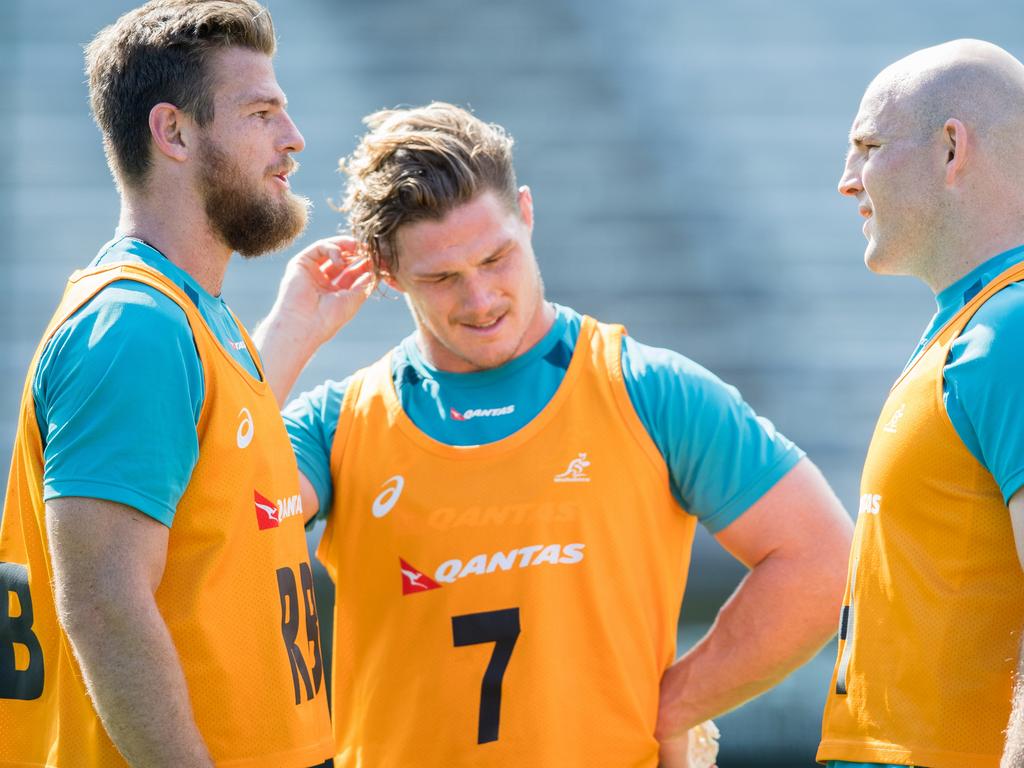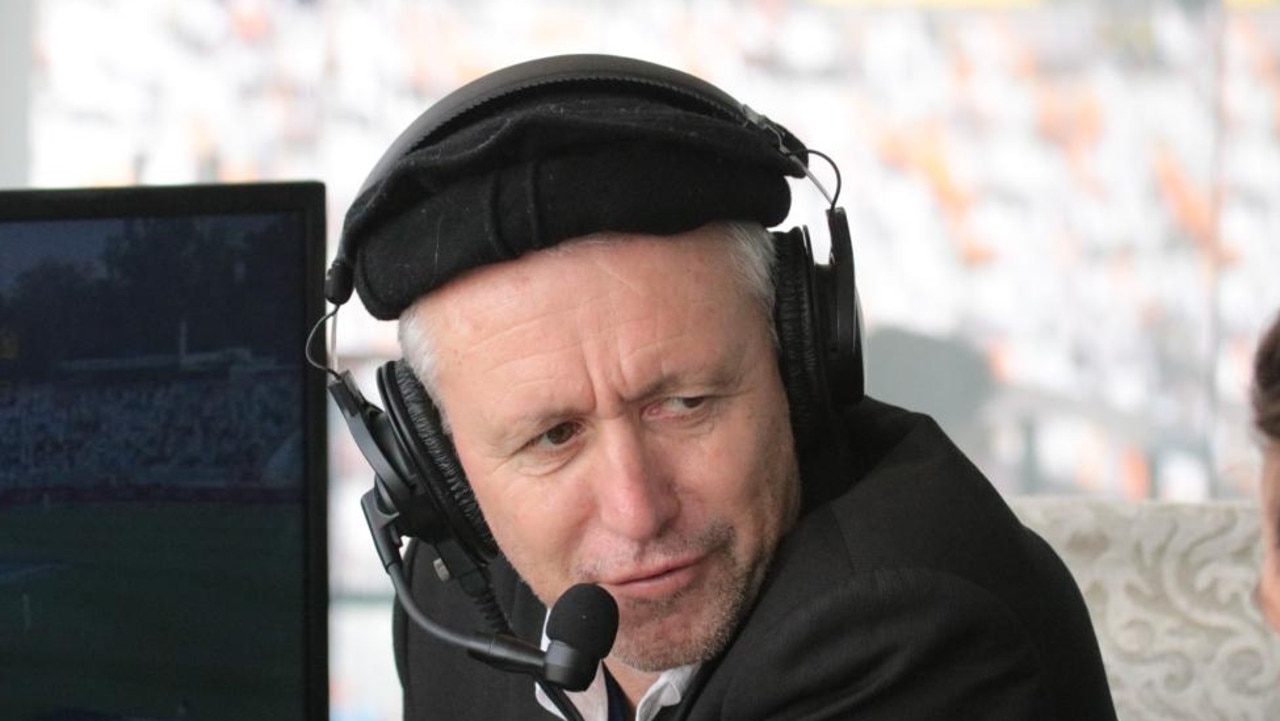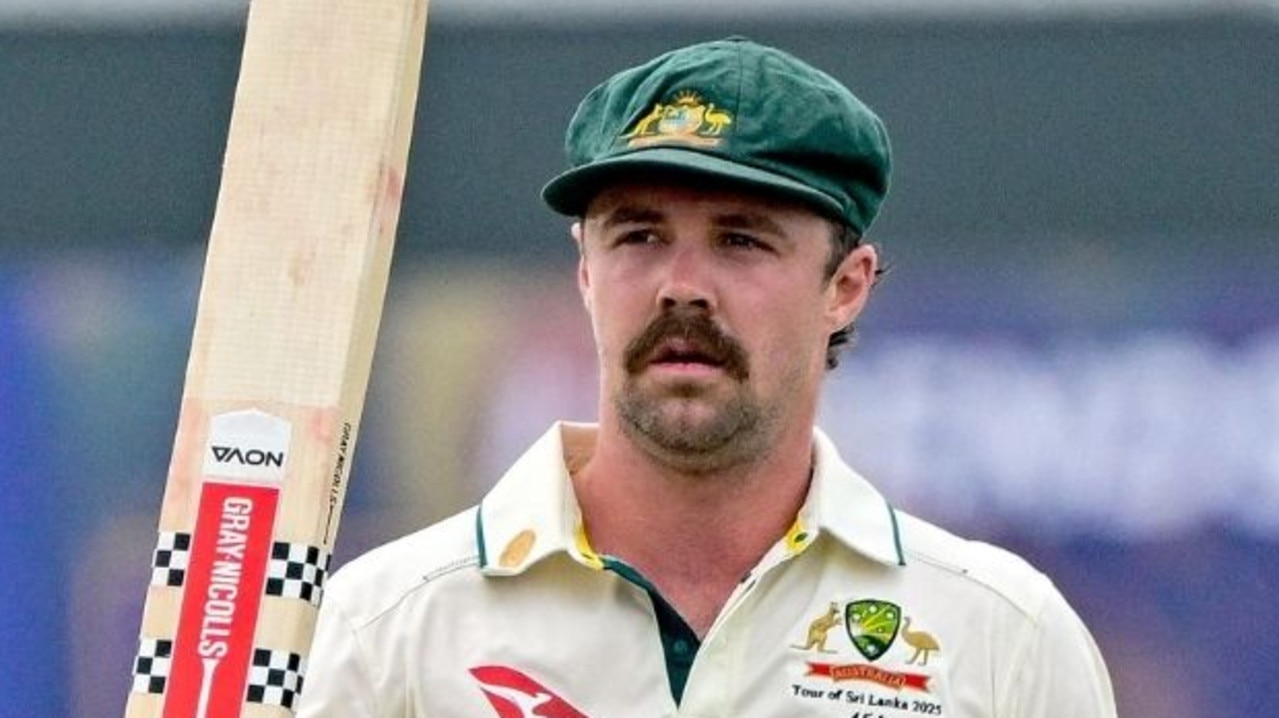All things being equal, players should take the knee
We want cricketers to think for themselves only insofar as they mirror our own prejudices.
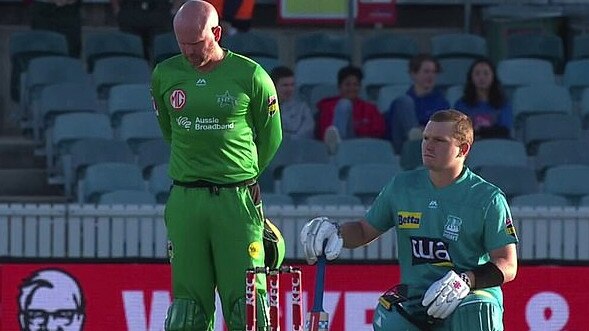
Last week, a left-handed batsman-keeper said something pretty brave about the practice of taking an anti-racist knee before games. No, not Quinton de Kock; Ben Dunk.
Dunk is a journeyman T20 player who last season did not join Melbourne Stars teammates taking a knee before a Big Bash League match. In an excellent interview with The Daily Telegraph’s Ben Horne, Dunk expressed regret at having been so “selfish and self-absorbed” as to have ignored “the opportunity to do the right thing”.
Dunk was being hard on himself, but also clear-headed. In hindsight, he realised, he had been “naive to not have realised the conversation would quickly shift … to who is taking a knee and who is not.” He here identified what was to entangle de Kock: the weight of the symbolism of taking the knee is now borne by its opposite.
Leaving the message aside momentarily, this is a remarkable triumph for a gesture anathematised as little as five years ago.
During the week, my colleague Janet Albrechtsen devoted her much-read column to the growing popularity of taking a knee, from its origins five years ago when San Francisco 49ers quarterback Colin Kaepernick was galvanised by a wave of police violence against people of colour. As Albrechtsen put it: “Kaepernick’s protest attracted attention from the then US president Donald Trump down.”
But it did more than “attract attention” from Trump. The gesture cost Kaepernick his career, and Trump was widely supported when he said that NFL players who emulated the quarterback were “sons of bitches” who should also be fired.
This emboldened Trump to barge, almost always idiotically, into virtually every American sport – and the “keep politics out of sport” crowd would do well to remember that social injustice warriors have done at least as much politicising as their counterparts.
Albrechtsen, a sceptic of the gesture, argued further that taking a knee was an “easy and cost-free exercise for many sporting stars who do little in their privileged private lives to combat racism.”
But were it so easy, I’m not sure Australian team would have made such heavy weather of it, undergoing protracted agonies last year about how to respond to the criticisms of their inaction from Michael Holding, adopting the compromise barefoot circle at home, then arriving at their current “me-too” policy on tour where they take a knee if opponents do.
And if the cost is less now than it was for Kaepernick, then that is because the more athletes have joined in, the harder it has grown to victimise individuals.
Which, if you genuinely value freedom, seems worth celebrating. Why should anyone have to forgo their livelihood for what they believe? Why should only martyrdom be deemed meaningful?
Even now, furthermore, I’m not sure that the “cost” has been discounted to zero, unless critics believe their own words are weightless.
Because social activism among athletes has ardent and noisy detractors, including from sainted names of previous generations – David Campese last week joined the lists. It reliably courts the allegation of bad faith and “virtue signalling”.
Ah, “virtue signalling” – a new name for an old idea, although it is true that Twitter, the perfect performance space for parading self-affirming no-obligation righteousness, could almost have been devised for it.
It is this that seems to induce maximum fury: that taking a knee is a “gesture”, and “gesture” is reflexively associated with adjectives such as “empty” and “hollow”.
There’s some force to the argument that gesture can become a substitute for practical action (albeit that critics seldom specify such practical measures or can point to their own).
But who can doubt sport’s symbolic quotient, its power for affirmation, its access to attention? We are constantly saluting, and sometimes frankly over-estimating, its capacity to be an agent of social change.
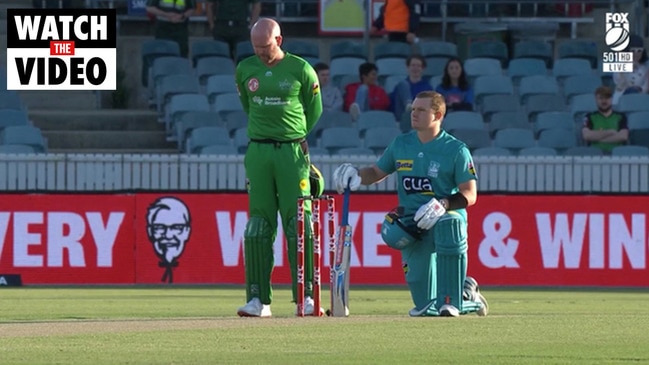
Gesture is also naturally followed with varying degrees of conviction and obeisance.
That being so, there will be cricketers for whom subscribing to a stance on racism and inclusion is a matter of obedience and conformism.
There will also be those to whom it is not. There will be others still who do not feel so strongly but assent as an act of collegiality with those who do. This doesn’t seem to make it more coercive than any other idea.
There will, at the same time, be those who object to the ritual, also for varying reasons.
These will include bigots. There will also be those who feel uncomfortable with what they see as, say, the trivialisation of serious issues and/or the weaponising of wokeness – and actually, held in good faith, these views are entitled to respect. The modern American campus is an ugly, fearful place.
To them, I’d say this. Cricket is a part of our colonial inheritance that has historically drawn great strength and prestige from its association with and representation of the nation.
It comes naturally into focus when aspects of nation identity, to which it is a contributor, come up for appraisal, as they do in a healthy society.
Australia is vastly more fortunate than South Africa, where cricket was an advertisement for and a rampart of apartheid. The advent as captain of Temba Bavuma, more than seven decades after the West Indies had their first black captain, is little short of momentous – Bavuma’s poise and dignity in this controversy has, by the way, been underrecognised.
The execration of de Kock, it is true, was out of all proportion to his offence; it involved a rush to judgment that ignored both de Kock’s background, and the aggravating factor of the mistrust between South Africa’s hard-pressed players and their brawling administrators.
But the symbolism of the earnest Bavuma kneeling while the insouciant de Kock stood was perfectly repulsive in the context of that country – that “growing throng of the wasted and depleted and maimed, brandishing their wounds,” as the South African novelist Damon Galgut describes it in The Promise, which last week won the Booker Prize.
What’s that? You’re all sorted? Nothing to learn? A bunch of cosseted, overpaid cricketers aren’t going to give you moral tutelage?
There’s a certain irony here. Athletes are often derided for their self-focus, their sporting narrowness; it seems strange to chide them in the next breath for that very modern and politically correct offence of “stepping out of their lane”. It testifies, I fear, to our worsening brittleness: we want them to think for themselves only insofar as they mirror our own prejudices.
The players of this era are both less and more worldly than their precursors: less in the sense that they are full-time professionals nurtured by sophisticated systems, more in that they are far better travelled, better informed and part of more diverse workplaces.
This is fundamental, I think, to the spread of the message. Australian cricketers are now part of racially blended dressing rooms all over the world. The idea of equality has immediate resonance in cricket: ability transcends everything, co-operation is fundamental, every wicket and run counts the same.
It is true that the best modern cricketers enjoy wealth and comfort unexampled in cricket history. But that is “the market”, whose munificence we are usually enjoined to celebrate. And the parrot-cry of “privilege”, an ad hominem the galaxy-brained right has borrowed from the holier-than-thou left, is in danger of becoming a form of soft cancellation.
The genie is out of the bottle where incidents such as de Kock’s, and predicaments such as Dunk’s, are concerned. A change is underway. Arguably it’s overdue. It’s time Cricket Australia and the players agreed a more comprehensive and less ad hoc response. Actions do speak louder than symbols. Why not turn our minds to what these could be?
I’m well aware that among readers of The Australian, this position is as unpopular as Albrechsten’s is popular. That, of course, is all the more reason to articulate it – the case for a game prepared to feel uncomfortable on occasions, in acknowledgment of its representational responsibilities, challenges and shortcomings.
If all you feel when racial equality is discussed is boredom, irritation and resentment, people trying to make you feel bad and do your country down …. well, maybe have another think. Because the principles enunciated should really be, as Ben Dunk put it, ‘a no-brainer’.



